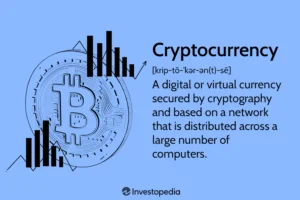Cryptocurrency wallets are the gatekeepers to your digital assets, holding the keys that grant access to your funds. With the growing popularity of cryptocurrencies, ensuring the utmost security of your crypto wallet has become paramount. In this comprehensive guide, we’ll explore the best practices to safeguard your crypto holdings and protect your wallet from potential threats.
Choose a Reliable Wallet
Selecting a reputable and secure wallet is the first step toward ensuring the safety of your cryptocurrencies. Consider using hardware wallets known for their robust security features, such as Ledger or Trezor, which store your keys offline, making them less susceptible to hacking attempts.
Enable Two-Factor Authentication (2FA)
Implementing two-factor authentication adds an extra layer of security to your crypto wallet. Enable 2FA whenever possible, requiring a secondary verification method, such as a code from an authenticator app, alongside your password for access to your wallet.
Backup Your Private Keys Securely
Your private keys are the access codes to your funds. Create multiple backups of your keys and store them securely in offline or encrypted formats. Avoid saving them on devices connected to the internet to prevent potential hacking or phishing attacks.
Regularly Update Software and Firmware
Keep your wallet’s software and firmware up to date. Manufacturers often release updates that address security vulnerabilities and improve overall protection. Stay informed about the latest updates and promptly install them to enhance your wallet’s security.
Practice Safe Internet Habits
Avoid accessing your wallet or conducting crypto transactions on public or unsecured Wi-Fi networks. Use a secure and trusted internet connection to minimize the risk of unauthorized access to your wallet.
Verify Addresses Before Transactions
Always double-check wallet addresses before sending or receiving cryptocurrency. A single incorrect character can result in irreversible loss. Copy and paste addresses or use QR codes whenever possible to minimize human error.
Be Cautious of Phishing Attempts
Beware of phishing scams that aim to trick users into revealing their wallet credentials or private keys. Verify the authenticity of websites and communications related to your wallet and never share sensitive information online.
Create a Strong and Unique Password
Craft a complex password for your wallet that includes a combination of uppercase and lowercase letters, numbers, and symbols. Avoid using easily guessable phrases or passwords that you use elsewhere to prevent unauthorized access.
Consider Cold Storage for Long-Term Holdings
For long-term storage of significant amounts of cryptocurrency, consider using cold storage solutions. Hardware wallets kept in secure locations offline provide an extra layer of protection against online threats.
Regularly Monitor Your Wallet Activity
Keep a close eye on your wallet activity. Regularly review transactions and account balances to quickly identify any unauthorized or suspicious activity.
Conclusion
Securing your crypto wallet is crucial in safeguarding your digital assets from potential threats. Implementing these best practices can significantly reduce the risk of theft or loss, providing peace of mind as you navigate the world of cryptocurrencies. Remember, taking proactive steps toward security is key to protecting your valuable investments in the crypto space.





